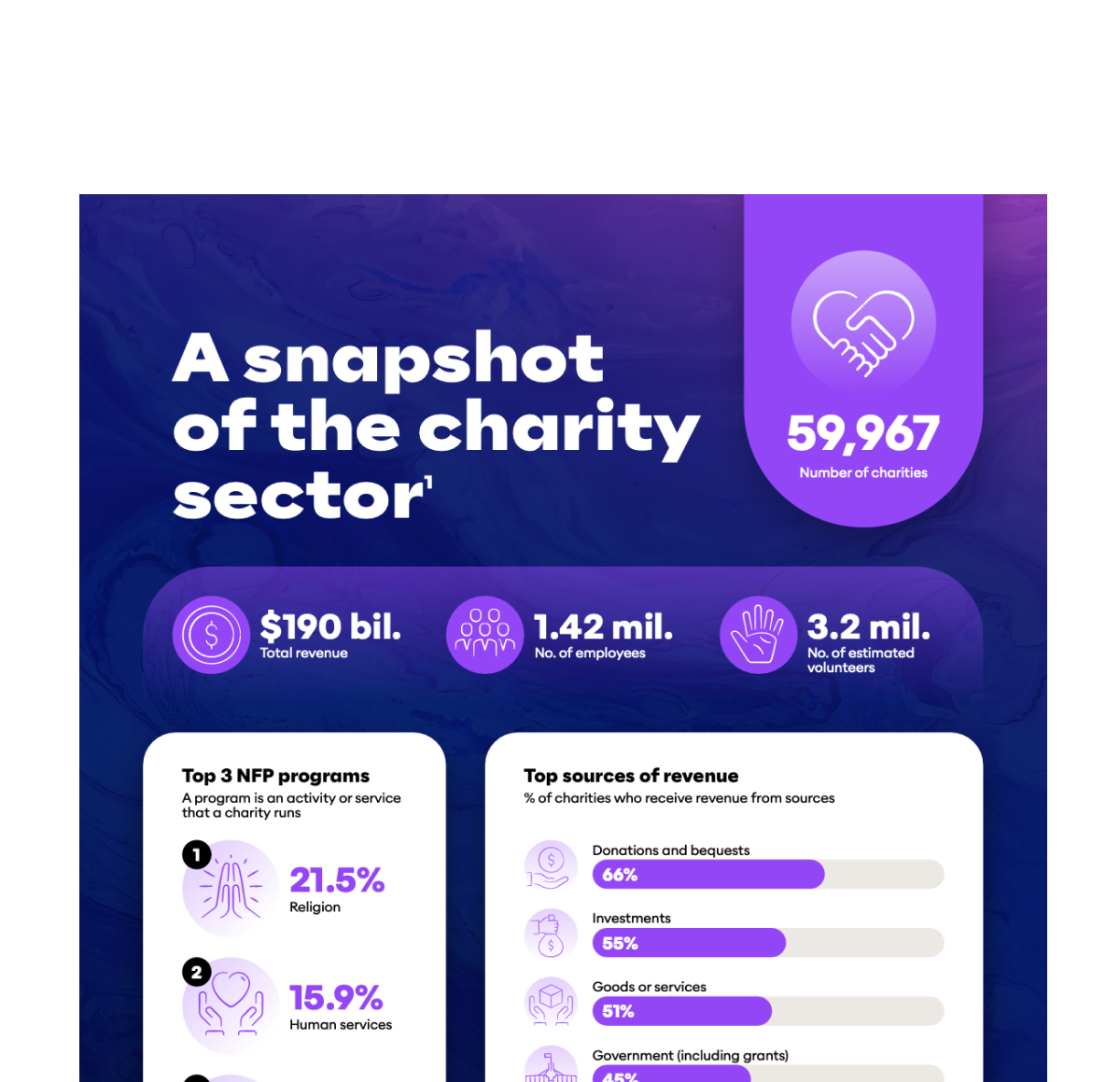Social licence within Australia’s not-for-profit sector

Social licence is often understood as ‘public permission to operate’. Positive public sentiment towards an organisation is essential for it to maintain its social currency and social licence. Positively, social licence for the charities/not-for-profit sector is on the rise, and more so than charity workers expect.
One in five Australian givers (20%) say their public support for charities/not-for-profits to operate has increased over the last five years. During this same period, 15% of charity workers believe public support for charities/not-for-profits to operate has increased.
Younger donors strengthen social licence
Positively, it is the donors of the future that are most likely to say their own support for charities/not-for-profits to operate has increased in the last five years. More than a third of Gen Z (35%) and three in ten Gen Y (28%) have increased their support for charities/not-for-profits to operate compared to 16% of Gen X, 12% of Baby Boomers and 7% of Builders.
Charities/not-for-profits seen as vital for a just society
The positive reputation of the sector is also on the rise, with more than one in five Australian givers (21%) and charity workers (22%) believing it has increased in the last five years. This makes Australian givers four times more likely to believe the positive reputation of the sector has increased (21%) than decreased (5%) over the last five years.
Not-for-profit leaders agree with this sentiment, believing that although the sector has experienced some trust challenges there is still public permission to operate because of the role charities/not-for-profits play in society. It is, however, becoming increasingly important to clearly communicate the purpose of the organisation and the why behind what they do to maintain this social licence.

Social licence connected to cause
Some causes, more than others, are seen to have a strong social licence. A weaker social licence is often found when people believe the organisation or cause is unnecessary. This can sometimes be when it is seen as the individual’s responsibility to help themselves rather than to rely on the support of others.
“I think [social licence] very much depends on which cause you’re talking about. Some causes have credence and a lot of currency with the Australian public, some causes have less currency. People think that they should be doing that themselves, we shouldn’t be asking other people for money to spend.”
– Tim Hanna, former CEO, Compassion Australia

Charities/not-for-profits receive special privileges because of social licence
Australian givers (56%) and charity workers alike (51%) believe the government and therefore society has entrusted charities/not-for-profits with special privileges even above commercial organisations, such as tax exemption, religious freedoms, rebates etc.
Three in five charity workers (60%) believe the circumstances under which they operate are special privileges. A quarter (24%) are very conscious of these special privileges and don’t take them for granted, while more than a third (36%) appreciate them. Two in five charity workers (40%), however, do not believe these conditions are special privileges but are required for charities/not-for-profits to operate.
Expectations rise due to benefits
While the special privileges the government provides to charities/not-for-profits are appreciated within the sector, our research showed that there is a sense among not-for-profit leaders that the special privileges increase the expectations of the Australian public.
Australian givers support this sentiment, with three in five givers (61%) agreeing the charities/not-for-profit sector must operate as more trustworthy than commercial organisations.
For some not-for-profit leaders, it is not necessarily that the expectation on charities is higher than commercial organisations but that they are now held to the same standard. Where once charities/not-for-profits were granted more leniency as they exist to help people, there is now an expectation that charities/not-for-profits are accountable and transparent like any other commercial organisation.





